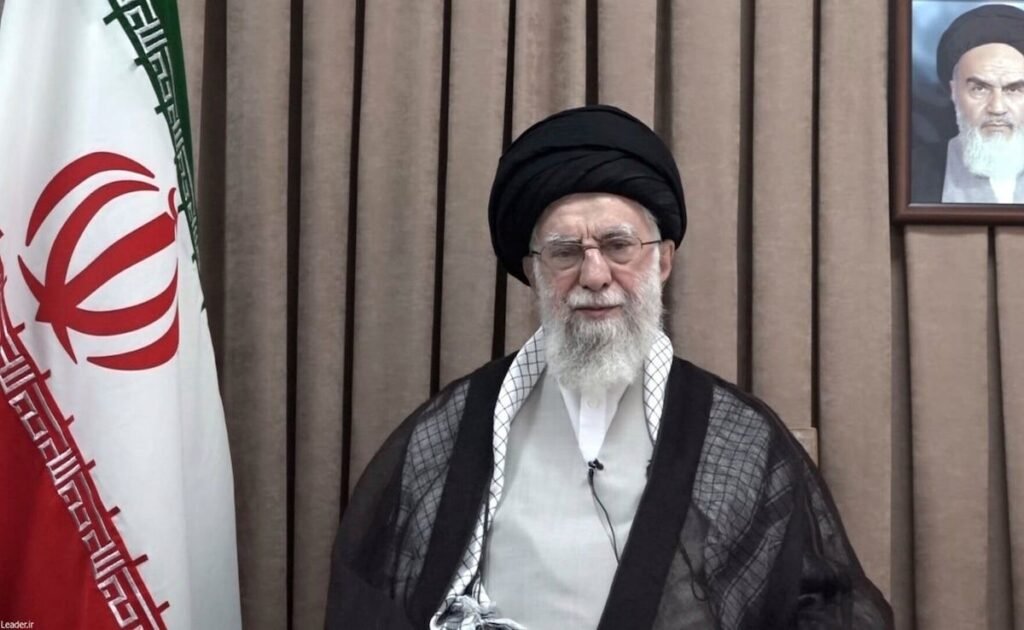“Enemy Made a Grave Mistake”: Khamenei Warns of Decisive Response After US Strikes

Iran’s Supreme Leader Ayatollah Ali Khamenei issued a fierce warning in response to U.S. airstrikes on Iran’s nuclear facilities at Fordow, Natanz, and Isfahan, saying the “Zionist enemy has made a big mistake” and “must be punished…right now.” He vowed a “harsh and decisive response” to both U.S. and Israeli actions .
Khamenei’s message, shared on X (formerly Twitter), came after Iran’s President Masoud Pezeshkian declared the U.S. must “receive a response” following the strikes—a move both called unlawful and the most serious Western military action since Iran’s 1979 revolution .
Earlier, U.S. B‑2 stealth bombers dropped massive bunker‑bunker bombs, striking the underground facilities in Fordow and missile attacks also hit Natanz and Isfahan. Tehran defended its nuclear programme as a “national industry” and has demanded international condemnation of the attacks .
Iran formally requested an emergency UN Security Council session. Its ambassador, Amir‑Saeid Iravani, accused the U.S. and Israel of undermining diplomacy and weaponising the Nuclear Non‑Proliferation Treaty. He demanded the world stand by Iran’s right to peaceful nuclear energy .
At the UN meeting, Secretary‑General António Guterres warned the strikes marked a “perilous turn” and urged a return to diplomacy. He called for “immediately and decisively” ending the fighting and resuming negotiations on Iran’s nuclear programme .
China’s UN envoy Fu Cong said the U.S. had damaged its credibility and cautioned that the situation “may go out of control,” advocating restraint and renewed diplomatic efforts .
Khamenei’s retaliation warning comes after his earlier statement on June 18, when he warned any U.S. intervention would cause “irreparable consequences” . Iran’s military leadership has confirmed it will “set” any response and named General Ali Shadmani as a key coordinator of upcoming operations .
This marks the most significant conflict escalation since Israel’s June 13 strikes on Iranian nuclear and military targets. Tehran’s forceful rhetoric and anticipated retaliatory actions heighten the risk of broader regional confrontation. International observers warn the cycle of strikes and counter-strikes could draw in proxies such as Hezbollah and heighten global economic and security instability .
Diplomats are racing to revive talks halted by military escalation, with Iran’s UN envoy stressing there is still a narrow window for diplomacy—even as his government prepares for sustained conflict .






